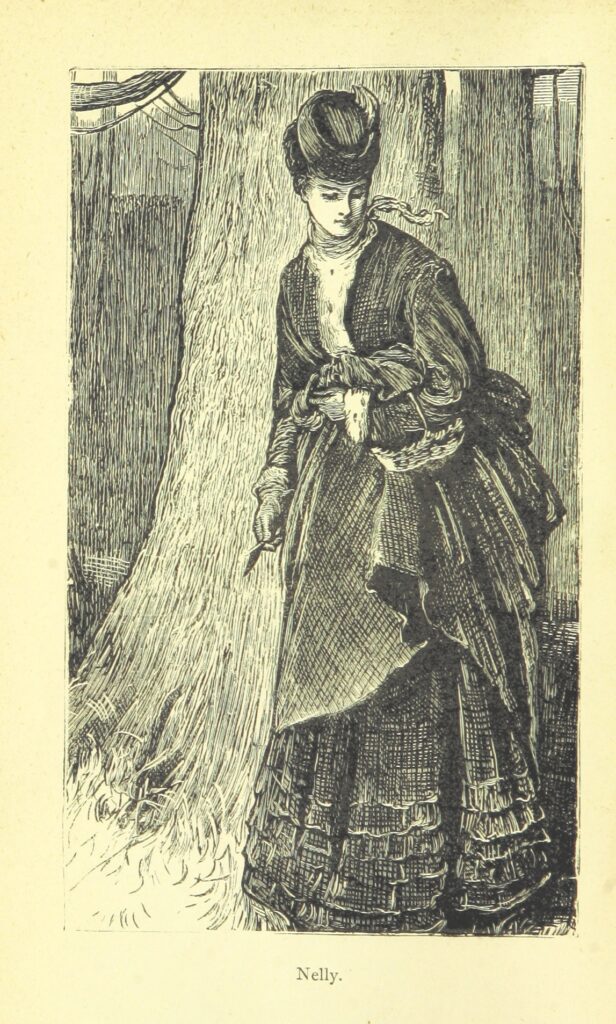Madonna Mary, Mrs Oliphant, three volumes (London: Hurst and Blackett, 1867)
Posted on 18th October, 2025 in Book Review, Mrs Oliphant, Victorian
I’m not sure if many people read Scottish author Margaret Oliphant’s (1828-97) books these days. Persephone Books have republished two novellas, The Mystery of Mrs Blencarrow and Queen Eleanor and Fair Rosamond in one edition. In the 1980s Virago published The Carlingford Chronicles, a series set in the fictional town of Carlingford said to have been inspired by Trollope’s Barsetshire series. A Beleagured City and Other Tales of the Seen and the Unseen from Canongate classics is a collection of short stories of the uncanny and weird. However, most of her books are out of print, which is hardly surprising when you realise that she wrote ninety-seven novels, as well as numerous short stories, articles, travel books and biography.
Luckily the London Library has a good collection, and thanks to them I’ve just finished Madonna Mary. It’s about a married woman, Mary Ochterlony, who has lost her marriage certificate. Her husband, Hugh, is so anxious about this he arranges for them to have a second wedding. Unfortunately, after his death this gives rise to rumours that they were never really married in the first place, and that their two eldest children are illegitimate. This paves the way for that staple plot of Victorian literature, the contested inheritance. Throw in a cast of gossips, moralising prudes, and greedy family members, and it all develops very nicely.
I’ll admit it might not sound like a nail-biting set up. And yet that is what it becomes. The exposure of the Awful Secret of that unfortunate second wedding looms over the characters’ lives, threatening ruin and disaster. But there are other reasons to think Madonna Mary isn’t going to top the best seller lists any time soon. Its format is wildly out of date: it is a three volume novel from the days when that was what the market demanded. Unsurprisingly, this format produced many bloated books, and there’s no denying that Madonna Mary is often slow moving and even repetitive. And, for a very long book, the ending is quite abrupt. In addition, the resolution relies entirely on coincidence.
These all sound like reasons not to read the book, but there’s something about Oliphant’s writing that draws me in. Even when I’m spotting the weaknesses, I’m immersed in the characters’ lives. So much so, that not only did I not mind the all too convenient coincidence that solved the central problem at one stroke, I was glad of it. I couldn’t face the prospect of the innocent heroine suffering because of the convergence of a series of unfortunate events and the prejudice, malice, and selfishness of some truly horrible characters.
I’m not suggesting the book would appeal to everyone, and I don’t suppose there are legions of readers who want to read a three-decker Victorian novel. But I find there’s something very enjoyable about immersing myself in a long, long novel, once I’ve got used to the pace. Mrs Oliphant’s characters are well drawn, and if on the face of it Madonna Mary seems like the typical insipid goody-goody, and her dastardly son-in-law the typical villain, I think there’s actually much more to them than that. I enjoyed the novel immensely and I am planning to read more books by and about this remarkable writer.
You can find out more about Margaret Oliphant at The Margaret Oliphant Fiction Collection website.

A heroine from one of Mrs Oliphant’s novels
Picture Credit
Illustration from Innocent: a tale of modern life by Mrs Oliphant (1828-1897), British Library on Flickr, No Known Copyright Restrictions
